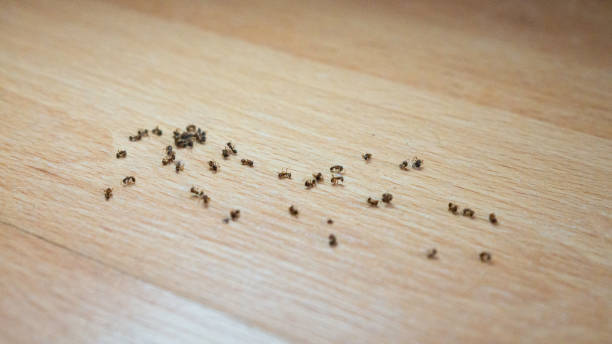Finding ants in your home can be frustrating and dealing with an infestation can often feel overwhelming. In this article, we will explore effective and tried-and-tested methods to help you get rid of ants and prevent them from returning. From natural remedies to using insecticides and sealing entry points, we will cover a range of solutions to ensure your home remains ant-free.
Identify the Type of Ants

The first step in getting rid of ants is to identify the type of ants you are dealing with. Different species of ants have different behaviors and food preferences, and thus require different treatment methods. For example, carpenter ants prefer wood and moisture, while sugar ants are attracted to sugary foods. Proper identification will help you choose the most effective method for elimination.
To identify the ants, observe their size, color, and behavior. You can also take a photo and use online resources or contact a local pest control expert for identification. Once you know the species, you can research their habits and various ways on how to eliminate them.
Eliminate Food Sources
Ants are usually attracted to food and water sources. Therefore, keeping your kitchen and other areas clean is crucial in preventing an ant infestation. Here are some steps to help:
- Store food in airtight containers.
- Clean up spills and crumbs immediately.
- Do not leave pet food out for long periods.
- Tightly seal garbage cans and take out the trash regularly.
- Repair leaky pipes and eliminate standing water.
By removing food and water sources, you reduce the attraction and sustenance for ants, making your home less inviting to them.
Use Natural Remedies
If you prefer non-toxic methods, several natural remedies can help deter and eliminate ants. Here are some popular options:
Vinegar Solution:
Mix equal parts vinegar and water in a spray bottle and spray along ant trails and entry points. The strong odor disrupts their scent trails.
Diatomaceous Earth:
This natural powder can be sprinkled around ant entry points and along trails. It dehydrates and kills ants upon contact.
Essential Oils:
Peppermint, tea tree, and citrus essential oils can be used as deterrents. Mix a few drops of oil with water and spray in areas where ants are present.
These natural methods are safe for pets and children, making them an excellent choice for households looking to avoid chemical insecticides.
Apply Chemical Insecticides
For more severe infestations, chemical insecticides can be highly effective. Choose an ant-specific insecticide and follow the instructions carefully. There are various formulations available, including baits, sprays, and granules.
Ant Baits:
These are highly effective as they attract ants to consume the bait and then carry it back to the colony, eventually killing the queen and the entire colony.
Sprays:
Ant sprays can be used directly on ant trails, nests, and entry points. While they provide immediate results, they may not be as effective in eradicating the entire colony.
Ensure you place baits and sprays in safe locations, away from children and pets. It’s also advisable to combine chemical treatments with preventive measures for a long-term solution.
Seal Entry Points
Preventing ants from entering your home in the first place is key to avoiding an infestation. Inspect your home for potential entry points and seal them up. Common entry points include cracks in walls, windows, doors, and the foundation.
Use caulking to seal gaps, repair damaged screens, and ensure weatherstripping around doors and windows is intact. Additionally, ensure that there is no vegetation touching your home, as ants can use it as a bridge to enter.
By making it difficult for ants to gain entry, you reduce the likelihood of future infestations significantly.
Conclusion
Dealing with ants in your home requires a combination of identification, eliminating food sources, using natural or chemical remedies, and sealing entry points. Following these steps diligently will help keep your space ant-free. Remember, the key to successful ant control is persistence and a proactive approach.
FAQs
Q: What is the most effective method for getting rid of ants?
A: The most effective method varies depending on the ant species and the extent of the infestation. Combining natural remedies, chemical treatments, and preventive measures usually yields the best results.
Q: Are natural ant remedies safe for pets?
A: Yes, natural remedies such as vinegar, diatomaceous earth, and essential oils are generally safe for pets. However, always use them according to instructions to ensure safety.
Q: How long does it take to get rid of an ant infestation?
A: The timeframe can vary based on the severity of the infestation and the methods used. It can take anywhere from a few days to a few weeks to see significant results.
Q: Can sealing entry points alone prevent ants from entering my home?
A: While sealing entry points is crucial, it should be combined with other preventive measures like eliminating food sources to be truly effective.
Q: Should I call a professional pest control service?
A: If the infestation is severe or if you have tried multiple methods without success, it might be wise to call a professional pest control service for targeted and efficient treatment.